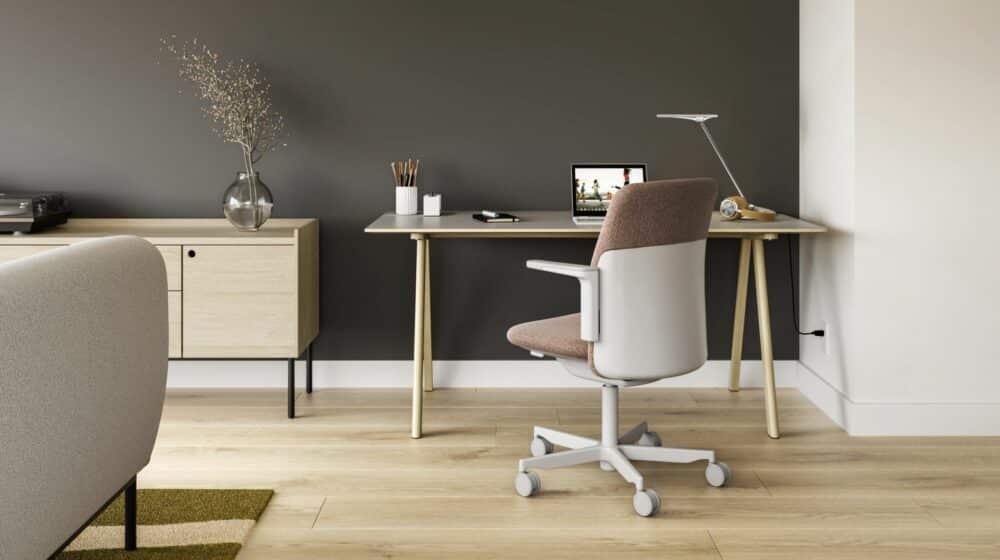As American brand Humanscale has recently received the B Corp certification for responsible manufacturing, we’d like to highlight the company’s journey of fighting to reduce the plastic in our oceans.
Yesterday, on April 22, Earth Day provided a poignant reminder of the pressing need for collective action to safeguard our planet’s health and vitality. In line with Earth Day 2024, marked by the theme “Planet vs. Plastic,” the discourse around environmental responsibility, corporate accountability, and the role of plastic in our ecosystem brought us back to one of our favorite American brands: Humanscale, renowned for its innovative and high-performance ergonomic products that enhance workplace health and comfort.
While plastic producers attempt to deflect criticism and paint themselves as environmental stewards, the reality remains stark. The pervasive presence of plastic waste in our oceans, the alarming projections of carbon emissions attributed to the plastic industry, and the profound health risks posed by plastic chemicals cannot be ignored. In this context, the recent certification of Humanscale as a B Corp exemplifies hope amidst the gloom of environmental degradation.
This certification, awarded by B Lab, signifies adherence to rigorous standards of social and environmental impact, legal commitment to stakeholder governance, and transparency in disclosing performance metrics. By embracing third-party certifications such as Living Product Challenge (LPC), Declare, Health Product Declarations (HPD), and Forest Stewardship Council (FSC), Humanscale reinforces its commitment to transparency and accountability.
Transforming Ocean Waste into Functional Design
By repurposing discarded fishing nets, which are notorious for their harmful impact on marine ecosystems, Humanscale addresses the issue of plastic pollution and sets a new standard for responsible manufacturing. In 2018, Humanscale launched its first collection of Smart Ocean chairs considered to be the world’s first office chair made from recycled fish nets. The company later expanded its Ocean collection with subsequent releases, including the Liberty Ocean chair in 2021 and the Path chair in 2022.
The Path chair by Humanscale, designed by Todd Bracher, incorporates recycled fishing nets, post-consumer plastic bottles, and post-industrial materials in its construction. It features patented Gravity Mechanism™ technology, which utilizes body weight for reclining, ensuring natural movement and support. Additionally, the chair incorporates FormSense Eco KnitTM, a mesh textile made from upcycled plastic bottles, exclusively made for Path, providing tailored lumbar support and a personalized fit. Regarding material composition, each Path chair utilizes approximately 4.3 kg (9.49 lbs) of ocean plastic, with approximately 2.8 kg (6.24 lbs) sourced from recycled fishing nets.
Fishing nets account for an estimated 10% of the total global marine waste by volume, according to research conducted by Circular Ocean. These discarded nets, often composed of synthetic polymeric fibers such as high-density polyethylene (HDPE) or polyethylene terephthalate (PET), pose a significant threat to marine life due to their non-biodegradable nature and propensity to drift within ocean currents. By repurposing these harmful materials into ergonomic office chairs, Humanscale mitigates environmental harm and raises awareness about the detrimental effects of marine plastic pollution and the urgent need for sustainable solutions.
Humanscale’s commitment to environmental responsibility extends beyond product design to encompass the entire lifecycle of its chairs. Each chair produced as part of the Ocean collection undergoes rigorous vetting for over 20 harmful chemical classes to ensure its safety and sustainability. By prioritizing transparency and accountability in its manufacturing processes, Humanscale sets a precedent for responsible corporate citizenship and underscores the transformative potential of sustainable design in addressing pressing environmental challenges.
INTERESTING POINT: Plastic waste, including discarded fishing nets, has undergone testing for potential reuse as reinforcement in concrete materials, showcasing a promising avenue for repurposing ocean plastic in sustainable construction practices.
Humanscale’s Sustainable Journey Towards Environmental Excellence
Humanscale’s attainment of the Living Product Challenge (LPC) certification from the International Living Future Institute highlights its commitment to producing environmentally positive products, as demonstrated by 29 climate-positive products, representing 75% of sales. This underscores the notion that profitability and sustainability can indeed coexist. Jane Abernethy, Director of Sustainability at Humanscale, expresses hope that this certification will inspire other companies to follow suit, emphasizing the crucial role of trailblazing entities like Humanscale in shaping a sustainable future amidst environmental challenges.
Since 2016, Humanscale has been pioneering sustainable initiatives, collaborating with suppliers to create the world’s first task chair from reclaimed fishing nets. In 2017, it became a founding member of the NextWave Initiative, furthering its commitment to ocean conservation. The launch of Smart Ocean office chairs in 2018 marked a milestone in the company’s journey toward environmental responsibility. Fast forward three years, with 26 products certified as climate-positive, Humanscale stands as the first company to offer a range of products certified as climate, energy, and water-positive. Notable among these are the Smart Ocean, Liberty Ocean, and Path chairs. Today, as one of the few large manufacturers to achieve B Corp certification, Humanscale continues to lead by example, inspiring a collective commitment to sustainability as a fundamental aspect of modern living.
READ our article published in 2020 about NextWave and catch our Instagram live interview with Kendall Starkman, the Director of NextWave Plastics at Lonely Whale.











